 W
WNazeer Akbarabadi ;(born Wali Muhammad; 1735–1830) was an 18th-century Indian poet known as "Father of Nazm", who wrote Urdu ghazals and nazms under nom de plume (takhallus) "Nazeer", most remembered for his poems like Banjaranama, a satire. His father was Muhammad Farooq and his mother was the daughter of Nawab Sultan Khan who was the governor of Agra Fort. Agra, the Indian city, was known as Akbarabad after Mughal emperor Akbar at that time. He used simple, everyday language in his poems, which made them popular in the masses.
 W
WMir Babar Ali Anees (1803–1874), also known as Mir Anees was an Urdu poet. He used his pen-name (thakallus) of Anees in poetry. Anees used Persian, Urdu, Arabic, and Sanskrit words in his poetry. Anis wrote prolonged Marsias, which was a custom of his times, but nowadays only selected sections are narrated even in religious ceremonies. He died in 1291 Hijra, corresponding with 1874 CE.
 W
WBahadur Shah Zafar or Bahadur Shah II was the last Mughal emperor. He was the second son of and became the successor to his father, Akbar II, upon his death on 28 September 1837. He was a nominal Emperor, as the Mughal Empire existed in name only and his authority was limited only to the walled city of Old Delhi (Shahjahanbad). Following his involvement in the Indian Rebellion of 1857, the British exiled him to Rangoon in British-controlled Burma, after convicting him on several charges.
Ibn-e-Safi was the pen name of Asrar Ahmad, a best-selling and prolific fiction writer, novelist and poet of Urdu from Pakistan. The word Ibn-e-Safi is an Arabic expression which literally means Son of Safi, where the word Safi means chaste or righteous. He first wrote from the British India of the 1940s, and later Pakistan after the independence of British India in 1947.
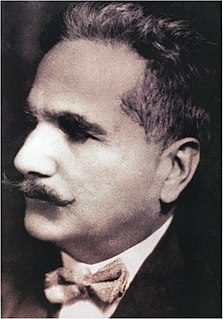 W
WSir Muhammad Iqbal was a poet and politician from Punjab, British India, whose poetry in Urdu,Punjabi and Persian is considered to be among the greatest of the modern era, and whose vision of an independent state for the Muslims of British India was to inspire the creation of Pakistan. He is commonly referred to as Allama Iqbal
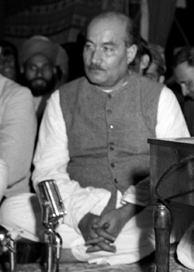 W
WJosh Malihabadi popularly known as Shayar-e-Inqalab is regarded as one of the finest Urdu poets of the era of British India. Josh always challenged the established order and stood for liberal values. He was loud, brave who never compromised on principles. He wrote over 100,000 beautiful couplets and more than 1,000 rubaiyat in his lifetime. His autobiography “Yaadon ki Barat” is considered one of the best so far in Urdu as it is written in frank and candid manner. The first Prime Minister of India, Jawaharlal Nehru held him in high esteem and hardly missed a chance to attend the mushaira at Lala Kishan Lal Kalra’s United Coffee House where Josh used to be the star attraction. He was an Indian citizen until 1956, when he emigrated to Pakistan and became a Pakistani citizen. Some of his works were translated to English like The Unity of Mankind elegies by Josh Malihabadi by Syed Akbar Pasha Tirmizi who was a Pakistani citizen and a high court advocate.
 W
WMir Muhammad Taqi Mir, also known as Mir Taqi Mir or Meer Taqi Meer, was an Urdu poet of the 18th century Mughal India, and one of the pioneers who gave shape to the Urdu language itself. He was one of the principal poets of the Delhi School of the Urdu ghazal and is often remembered as one of the best poets of the Urdu language. His takhallus was Mir. He spent the latter part of his life in the court of Asaf-ud-Daulah in Lucknow.
 W
WMirza Salaamat Ali Dabeer, (1803–1875) was an Urdu poet who excelled and perfected the art of Marsiya writing. He is considered the leading exponent of Marsiya Nigari or marsiya writing along with Mir Anees.
 W
WShibli Nomani was an Islamic scholar from the Indian subcontinent during British Raj. He was born at Bindwal in Azamgarh district of present-day Uttar Pradesh. He is known for the founding of the Shibli National College in 1883 and the Darul Mussanifin in Azamgarh. Shibli was a scholar in Arabic, Persian, Turkish and Urdu. He was also a poet. He collected much material on the life of the Prophet of Islam, Muhammad but could write only first two volumes of the planned work the Sirat-un-Nabi. His disciple, Sulaiman Nadvi, made use of this material and added to it and also wrote remaining five volumes of the work, the Sirat-un-Nabi after the death of his mentor.
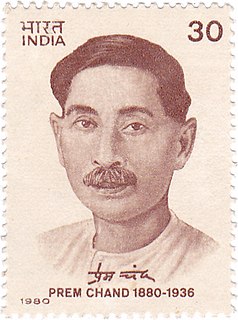 W
WDhanpat Rai Srivastava, better known by his pen name Munshi Premchand (pronounced [mʊnʃiː preːm t͡ʃənd̪] , was an Indian writer famous for his modern Hindustani literature. He is one of the most celebrated writers of the Indian subcontinent, and is regarded as one of the foremost Hindi writers of the early twentieth century. His novels include Godaan, Karmabhoomi, Gaban, Mansarovar, Idgah. He published his first collection of five short stories in 1907 in a book called Soz-e Watan.
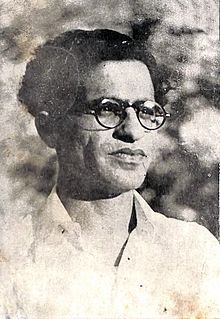 W
WAhmad Nadeem Qasmi born Ahmad Shah Awan on 20 November 1916 – died 10 July 2006, was an Urdu language Pakistani poet, journalist, literary critic, dramatist and short story author. He wrote 50 books on topics such as poetry, fiction, criticism, journalism and art, and was a major figure in contemporary Urdu literature. His poetry was distinguished by its humanism, and his Urdu afsana work is considered by some second only to Munshi Prem Chand in its depiction of rural culture. He was also editor and publisher of the literary magazine Funoon for almost half a century. He received awards such as the Pride of Performance in 1968 and Sitara-e-Imtiaz in 1980 for his literary work.
 W
WAllama Rashid-ul-Khairi, born as Mohammad Abdur Rashid and largely known as Musavire Gham , was a social reformer of British India and is one of the most celebrated literary names of Urdu literature. He blended reformist and didactic teachings with literary works and is considered among the pioneers of Urdu short story.
 W
WRatan Nath Dhar Sarshar was an Urdu novelist, columnist and editor from British India. Born into a Kashmiri Brahmin family which settled in Lucknow, he received his education at Canning College and later took up employment as a schoolteacher. In August 1878, he was appointed editor of the Lucknow-based newspaper Avadh Akhbar, in which his most famous work Fasana-e-Azad was published serially.
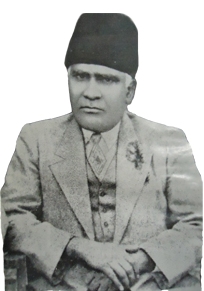 W
WHafiz Mehmood Shirani was an Indian researcher and poet during the British era and father of famous Urdu poet Akhtar Sheerani. He started teaching Urdu at Islamia College, Lahore in 1921. In 1928 he moved to Oriental College, Lahore. He was a researcher and his popular theory was "Punjab Mein Urdu" which made him famous. Hafiz Mehmood Khan Shirani died in his native town of Tonk.
 W
WSyed Sajjad Haider Yaldram or Syed Sajjad Haider born 1880 Nethore-1943 was an Urdu short story writer, travel writer, translator, linguist, essayist, and humorist From British India.
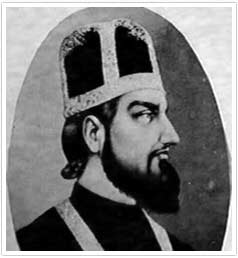 W
WSheikh Muhammad Ibrahim Zauq (1790–1854) was an Urdu poet and scholar of literature, poetry and religion. He wrote poetry under nom de plume "Zauq", and was appointed poet laureate of the Mughal Court in Delhi just at the age of 19. Later he was given the title of Khaqani-e-Hind by the last Mughal emperor and his disciple Bahadur Shah Zafar.